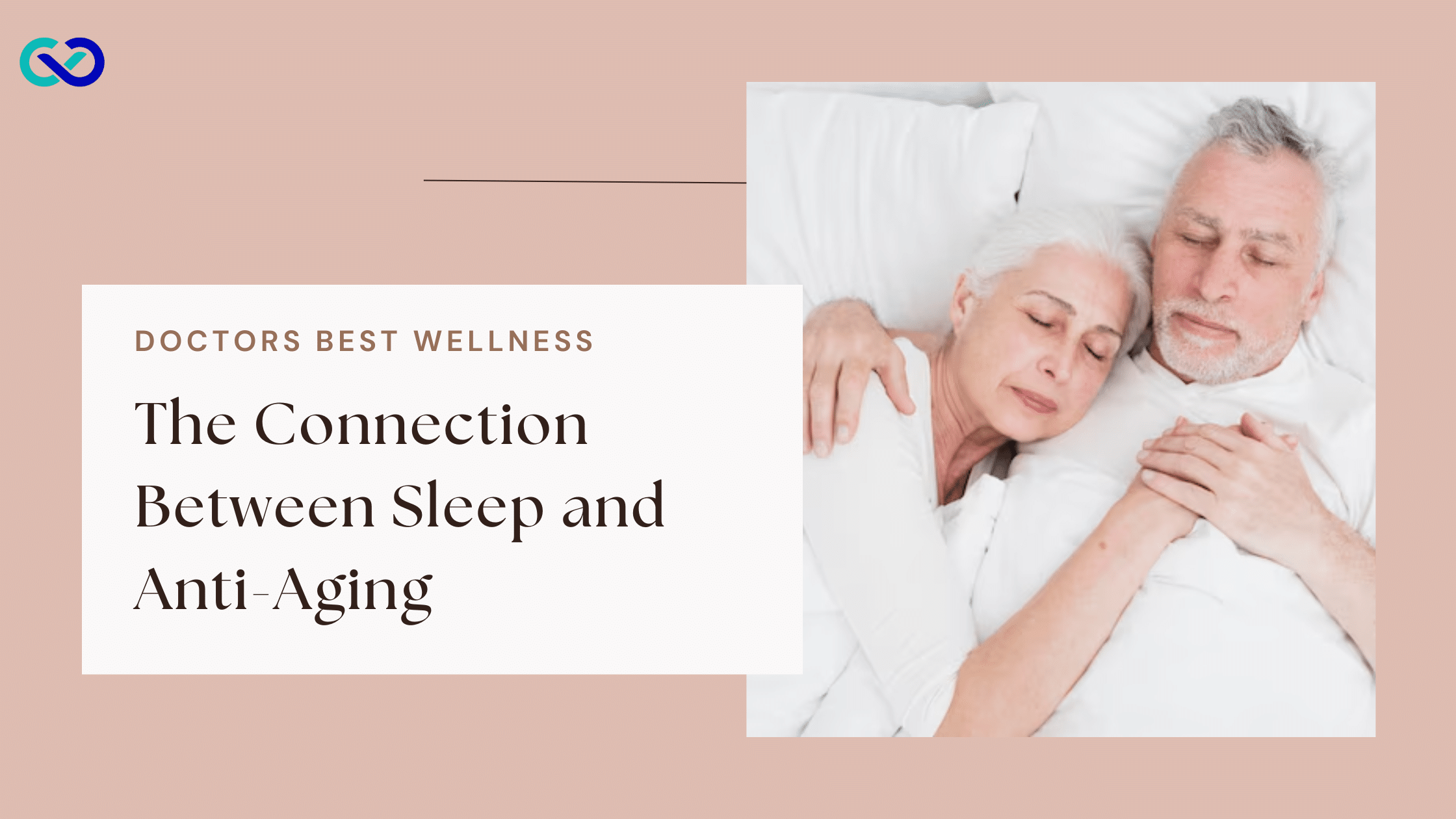Nothing rejuvenates the body quite like a restful night’s sleep. Dubbed “beauty sleep,” this vital activity does more than just ward off under-eye circles it plays a pivotal role in skin health and aging. In our bustling lives, it’s easy to overlook the rejuvenating power of quality sleep.
Today, let’s uncover the relationship between sleep and aging, provide practical tips for enhancing sleep quality, and discuss how these can be integrated into a broader anti-aging regime.
Understanding Sleep’s Role in Anti-Aging
Sleep is our body’s chance to restore and repair itself. Groundbreaking studies, including those from the National Center for Biotechnology Information, illustrate that lack of sleep leads to stress on our cells, inflammation, and accelerated aging signs.
Sleep’s Impact on Skin Health
- Collagen Production: Nighttime is prime time for collagen production. This key protein keeps our skin firm and wrinkle-free.
- Moisture Regulation: A full night’s sleep helps regulate skin moisture, keeping it hydrated and preventing a tired, dull appearance.
- Cell Renewal: While we dream, our skin gets busy repairing damage from sun exposure and pollutants.
Hormonal Harmony
- Melatonin: Beyond regulating sleep, melatonin acts as a powerful antioxidant for our skin.
- Human Growth Hormone (HGH): This hormone, secreted during deep sleep, is essential for skin repair and renewal.
The Visible Costs of Sleep Deprivation
Missing out on sleep doesn’t just make you feel groggy it visibly ages you:
- Wrinkles and Lines: Without enough sleep, collagen production drops, and wrinkles find their way to our skin sooner.
- Dark Circles and Puffiness: Poor circulation from lack of sleep emphasizes dark circles and puffiness under the eyes.
- Inflammation and Breakouts: Ongoing sleep deficits can lead to chronic inflammation, and worsening skin clarity and condition.
Reaping the Anti-Aging Benefits of Sleep
Achieving 7-9 hours of uninterrupted sleep can transform your skin health:
- Radiant Complexion: Good sleep is synonymous with a hydrated, vibrant complexion.
- Elasticity and Firmness: Regular rest supports collagen integrity, helping keep your skin firm.
- Balanced Stress Hormones: Adequate sleep lowers cortisol levels, which in turn preserves collagen.
Practical Sleep Strategies for Enhanced Aging
Maximize your anti-aging efforts by improving sleep quality with these strategies:
- Optimize Your Sleep Environment
- Ensure your bedroom is cool, quiet, and dark. Consider blackout curtains and white noise devices for an uninterrupted rest.
- Establish a Regular Sleep Routine
- Consistency is key. Go to bed and wake up at the same time daily to stabilize your internal clock.
- Watch Your Diet
- Avoid caffeine and heavy meals before bedtime. Opt for magnesium-rich foods like almonds and bananas to promote relaxation.
- Limit Screen Time
- Reduce exposure to blue light before bedtime by switching off electronic devices an hour before sleep.
- Incorporate Relaxation Techniques
- Engage in calming activities such as yoga, deep breathing, or meditation to wind down before bed.
- Adopt Comprehensive Anti-Aging Practices
- Pair good sleep with a skincare routine tailored to your needs. Consider nutritional supplements and consult with a dermatologist about advanced treatments like hormone replacement therapy.
Sleep: Your Natural Anti-Aging Elixir
While sleep is a fundamental component of any anti-aging strategy, it’s most effective when combined with a healthy lifestyle that includes balanced nutrition, regular physical activity, and stress management. Integrating these elements will not only help you look younger but also feel more vibrant and healthy at every life stage.
Closing Thoughts: Make Sleep a Priority
The science is clear: sleep is a powerful ally in maintaining youthfulness and overall well-being. Prioritize it nightly, and you’ll thank yourself in the years to come. Remember, true beauty sleep isn’t just a myth it’s a reality that can define your approach to aging gracefully.



Follow us